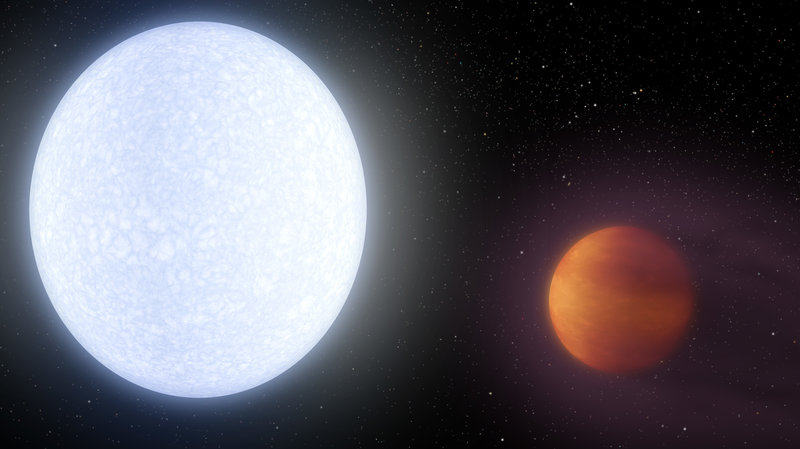Astronomers discover a scorchingly hot planet that has a comet-like tail and is almost 3 times the size of Jupiter

A free daily email with the biggest news stories of the day – and the best features from TheWeek.com
You are now subscribed
Your newsletter sign-up was successful
Scientists have discovered a planet that is almost three times bigger than Jupiter, is hotter than most stars in the solar system, and sports a comet-like tail of gas. The planet, Kelt-9B, was first spotted by telescope when it clipped past its host star, which is twice is hot as the sun and resides some 650 light-years away from Earth.
Kelt-9B is the hottest exoplanet ever discovered — and to make it even more fascinating, one side of the planet is always shrouded in darkness while the other side is always being scorched with light. The day-side temperature on the tidally-locked planet is an estimated 7,800 degrees Fahrenheit, Gizmodo reported. "It's so hot that we think that there's no molecules that can live on the day side of this planet," said Scott Gaudi of Ohio State University, whose team recently published its findings on Kelt-9B in the journal Nature. "Its day side would be very bright orange. Its night side would be very dark red. And it would have a cloud of evaporating hydrogen and helium, which would actually look violet."
The heat beating down on Kelt-9B may cause it to meet an early demise. The Guardian noted that the extreme heat makes it so the planet "puffs up like a
The Week
Escape your echo chamber. Get the facts behind the news, plus analysis from multiple perspectives.

Sign up for The Week's Free Newsletters
From our morning news briefing to a weekly Good News Newsletter, get the best of The Week delivered directly to your inbox.
From our morning news briefing to a weekly Good News Newsletter, get the best of The Week delivered directly to your inbox.
soufflé to create a world nearly three times as massive as Jupiter but only half as dense." The constant stream of radiation might eventually evaporate the planet's atmosphere, whittling the planet down to its core — or causing it to completely disappear.
In the meantime, Gaudi says his team plans to further study this planet, which is "under the most extreme conditions, basically, that we've seen any kind of giant planet experience."
A free daily email with the biggest news stories of the day – and the best features from TheWeek.com